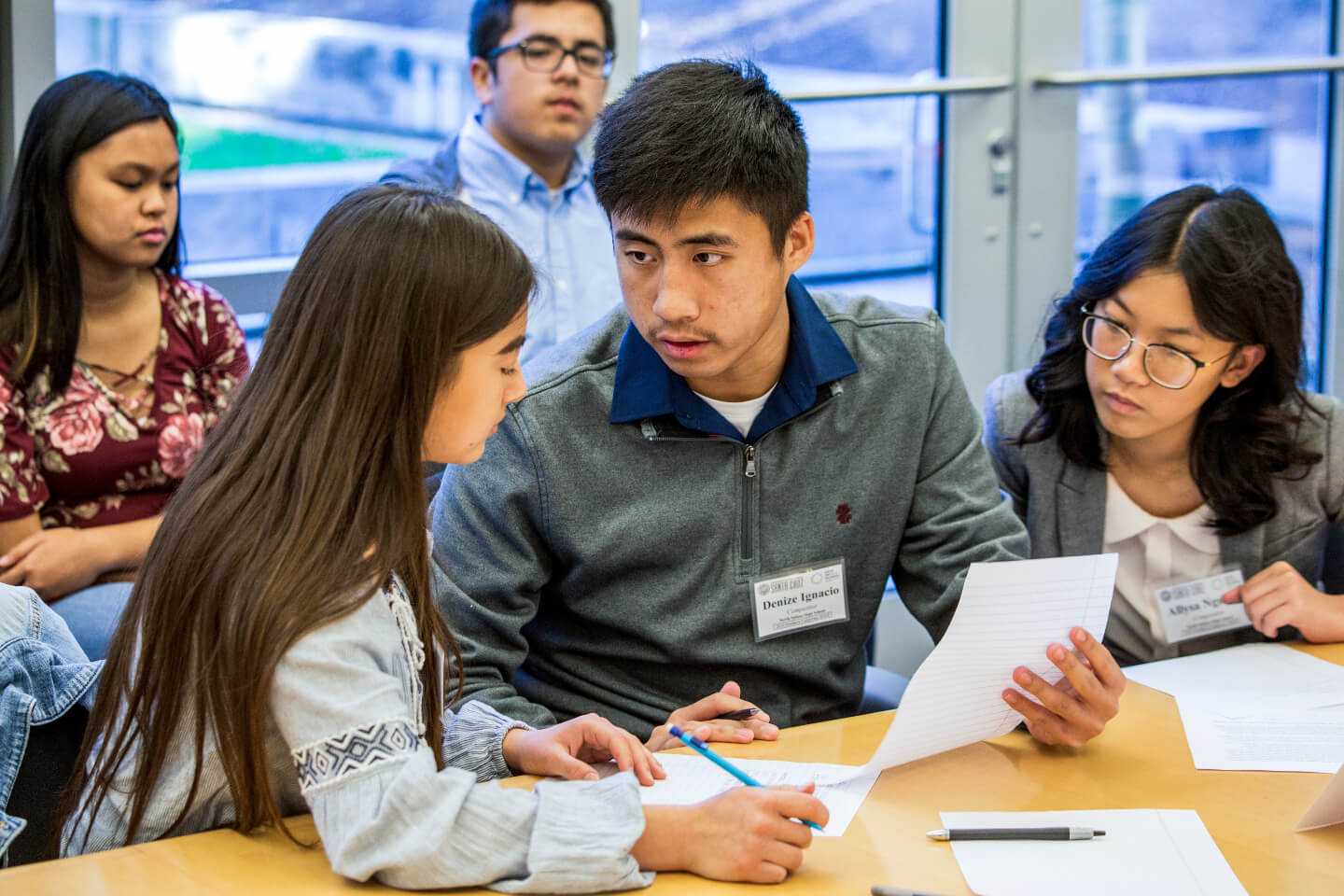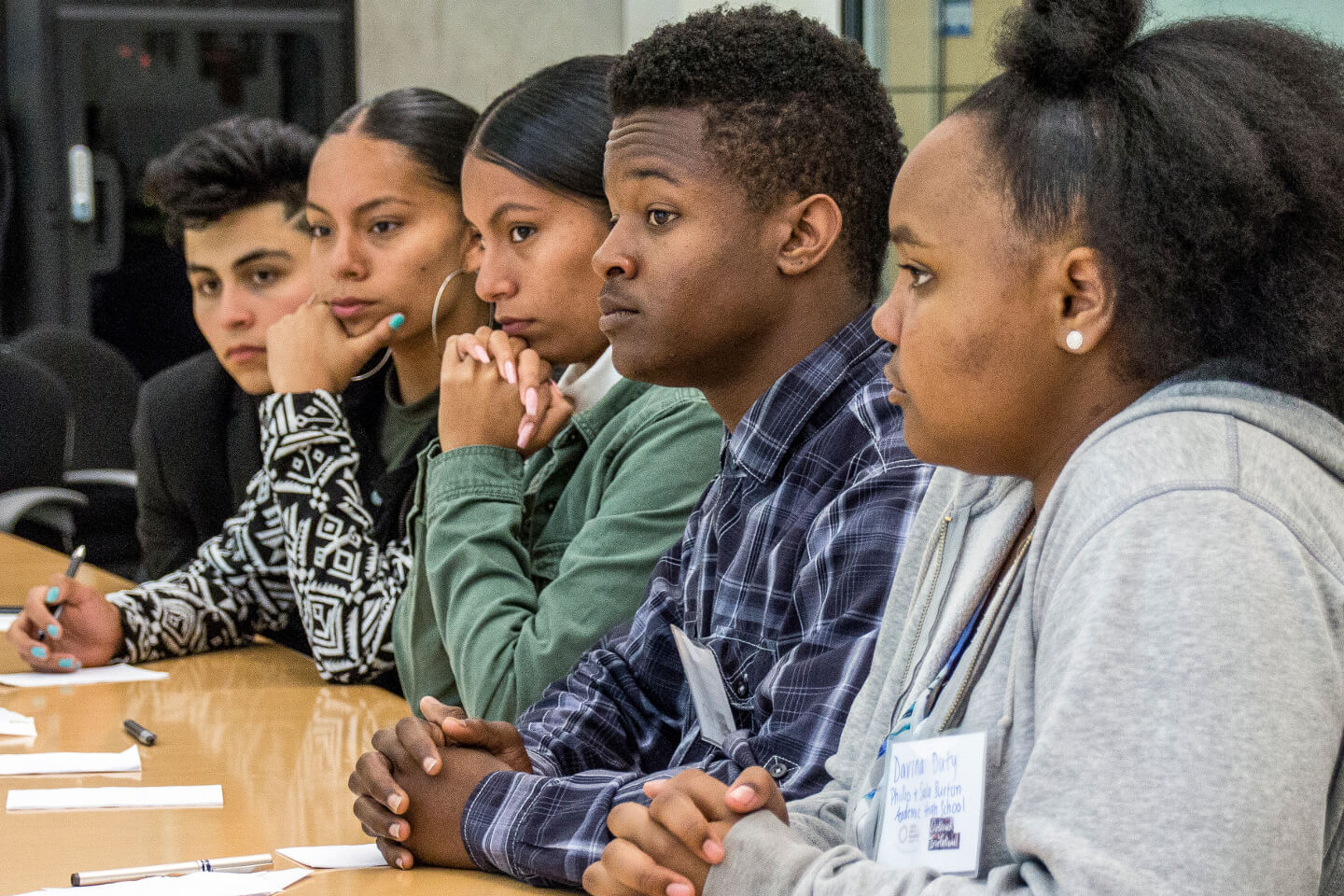Bringing Ethics Bowl to underserved high schools in Northern California

Each winter, high school teams from Salinas to San Francisco travel to UC Santa Cruz to compete in the Northern California High School Regional Ethics Bowl.
The topics discussed are relevant and easy for a high school student to relate to: “Is it ever OK to lie for a friend?” “Is it ethical for a school to punish or fire teachers for conduct that occurs off campus?” “Should a student confront the father of a friend making homophobic and sexist remarks in his own home?”
But the process is very different from traditional debates where teams are assigned a particular side for which to argue. Instead, the Ethics Bowl teams are asked to defend whatever ethical position their sustained reasoning has led them to endorse. The emphasis is on sincere, thoughtful reflection, as opposed to simply persuasion.
We saw a need to reach out to schools that don’t have debate programs and students who don’t have these sorts of opportunities. —Kyle Robertson
Kyle Robertson, now assistant director of the Center for Public Philosophy, founded the regional high school program in 2012 when he was a Ph.D. student, and has watched it steadily grow. But his team soon noticed that most of the growth had come from socioeconomically advantaged schools and student bodies.
“We saw a need to reach out to schools that don’t have debate programs and students that don’t have these sorts of opportunities,” said Robertson.
As a result, in 2016, the Center for Public Philosophy established an “Outreach Invitational” program specifically for those schools, as “a low stakes way for students to get their feet wet.” It trained undergraduate philosophy majors to coach the high school teams and brought in community leaders to serve as judges—creating a highly successful model for engaging underserved schools. And by bringing the students to UC Santa Cruz for the main event, they made college a much more tangible possibility.
“A lot of our students are really not exposed to the college culture,” said Luis Ruelas, a teacher at DCP Alum Rock High School in San Jose. “That’s what’s particular about our school, and the schools in general, that are participating—the students were mainly minority and low-income. So being on a college campus was super exciting for them because they haven’t really seen themselves at a college before.”
Catherine Ramírez, associate professor of Latin American and Latino studies and director of the Chicano Latino Research Center at UC Santa Cruz, served as a judge for the 2017 Invitational Bowl. She noted that the program provides students with a glimpse of what goes on at the university.

“It gives students the opportunity to read carefully, to reflect, to identify and harness evidence, and then present it in as compelling and a eloquent manner as possible—and to have a real exchange with one another,” said Ramírez. “I feel that these opportunities are increasingly rare.
“We as Latinos are generally not associated with the intellectual or the academic, with the white collar or the professional,” she added. “And what I saw was a group of very smart, very articulate, very hard-working Latino kids, thinking critically and taking themselves and each other seriously. … This was an extraordinary experience for me.”
